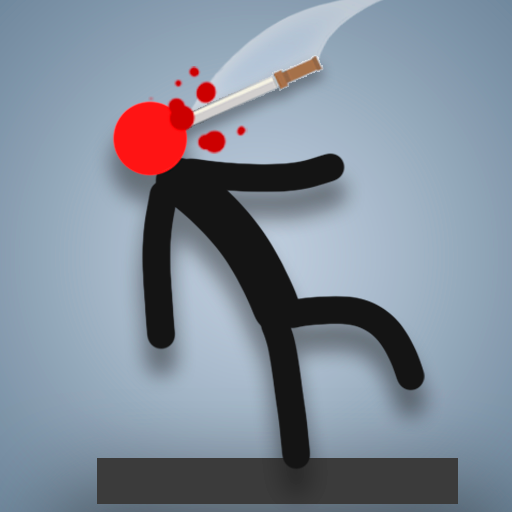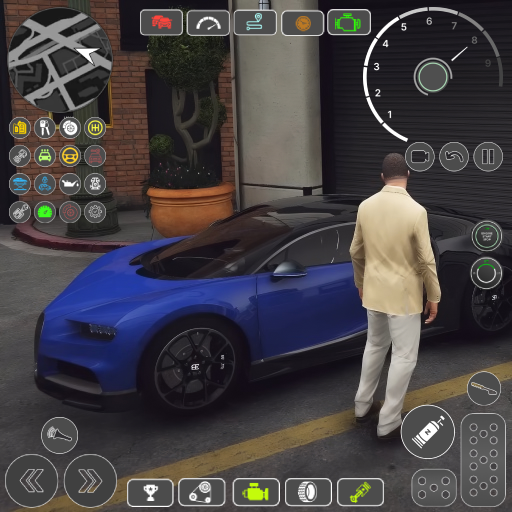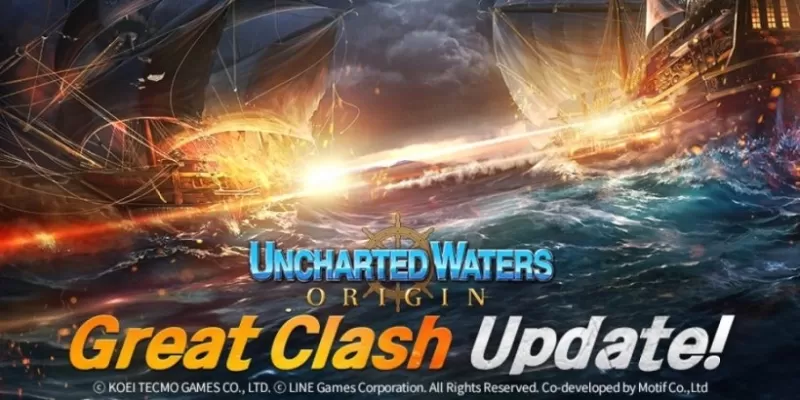With Monster Hunter Wilds breaking Steam records and the Resident Evil series more popular than ever, thanks to Village and a series of stellar remakes, it seems as though Capcom is currently on an unstoppable winning streak. However, this wasn't always the case. Less than a decade ago, following a string of critical and commercial flops, Capcom found itself struggling, having lost both its direction and its audience.
Capcom was grappling with an identity crisis. The iconic Resident Evil series, which had pioneered the survival horror genre, had lost its edge following Resident Evil 4. Similarly, Street Fighter, another flagship franchise, was struggling after the lukewarm reception of Street Fighter 5. It seemed as if Capcom's future was uncertain, teetering on the brink of collapse.
Yet, amidst the turmoil, Capcom found a way to reinvent itself. A shift in their game development approach, bolstered by a new, powerful game engine, breathed new life into their beloved series. This strategic pivot ignited a period of critical and financial success that propelled Capcom back into the gaming industry's elite.
Resident Evil Lost Its Way
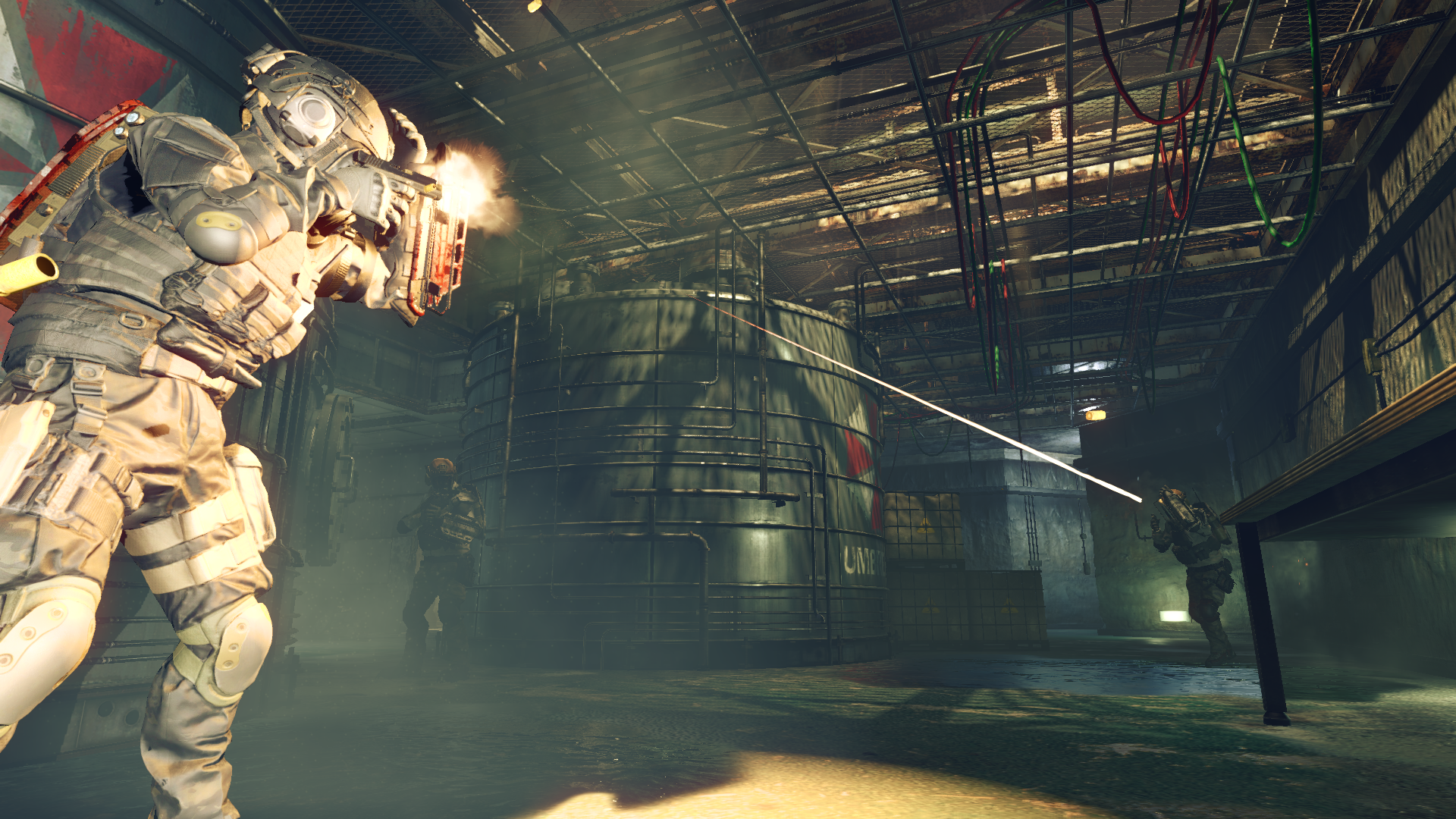 2016 was a challenging year for Capcom. The release of Umbrella Corps, an online co-op shooter, was met with harsh criticism from both reviewers and fans. Meanwhile, Street Fighter 5 left many long-time fans disappointed, and Dead Rising 4 marked the end of the series' new entries. This period represented a low point for Capcom, following several years of declining critical reception despite strong sales for mainline Resident Evil games. Street Fighter was also struggling, and other key franchises like Devil May Cry were absent from the scene. At the time, Monster Hunter was popular in Japan but faced challenges in breaking into international markets.
2016 was a challenging year for Capcom. The release of Umbrella Corps, an online co-op shooter, was met with harsh criticism from both reviewers and fans. Meanwhile, Street Fighter 5 left many long-time fans disappointed, and Dead Rising 4 marked the end of the series' new entries. This period represented a low point for Capcom, following several years of declining critical reception despite strong sales for mainline Resident Evil games. Street Fighter was also struggling, and other key franchises like Devil May Cry were absent from the scene. At the time, Monster Hunter was popular in Japan but faced challenges in breaking into international markets.
Capcom's turnaround required more than just learning from past mistakes; it necessitated a complete overhaul of their strategy. From redefining their target audience to adopting new technology, Capcom's transformation was comprehensive. IGN spoke with four of Capcom's leading creatives to uncover how this gaming giant managed to stumble, fall, and rise stronger than before.
Founded in 1979 as a manufacturer of electronic game machines, Capcom rose to prominence in the '80s and '90s with iconic 2D titles like Street Fighter and Mega Man. The transition to 3D gaming with games like Resident Evil further solidified their status. However, between 2000 and 2010, Capcom faced the challenge of modernizing their classic franchises, a journey that culminated in the acclaimed Resident Evil 4.
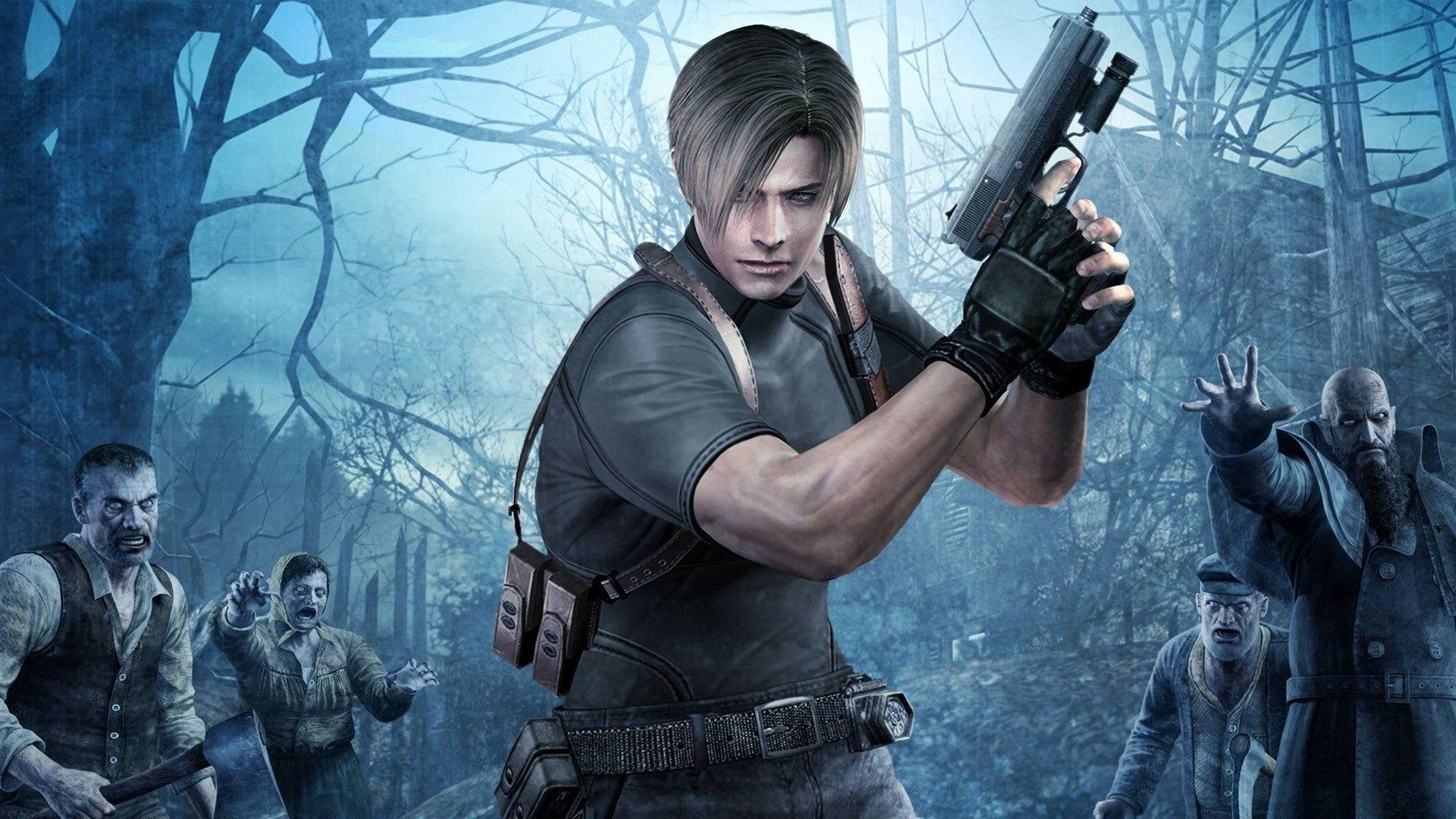 Resident Evil 4, released in 2005, is widely regarded as a masterpiece due to its seamless blend of horror and action. However, subsequent games like Resident Evil 5 and 6 lost the delicate balance that made Resident Evil 4 so successful, veering more towards action than horror. This shift led to a disconnect between the series and its fans, as noted by Resident Evil 4 remake director Yasuhiro Ampo, who has been involved with the series since 1996.
Resident Evil 4, released in 2005, is widely regarded as a masterpiece due to its seamless blend of horror and action. However, subsequent games like Resident Evil 5 and 6 lost the delicate balance that made Resident Evil 4 so successful, veering more towards action than horror. This shift led to a disconnect between the series and its fans, as noted by Resident Evil 4 remake director Yasuhiro Ampo, who has been involved with the series since 1996.
This confusion in direction culminated in Resident Evil 6, which attempted to cater to both action and horror fans but failed to satisfy either group fully. Capcom's struggles weren't limited to Resident Evil; Street Fighter also faced challenges with Street Fighter 5, which was criticized for its lack of content and poor online functionality. Even Devil May Cry saw diminishing returns, leading Capcom to outsource the next game in the series to Ninja Theory, which resulted in mixed reactions.
Street Fighter 5, The Lost Cause
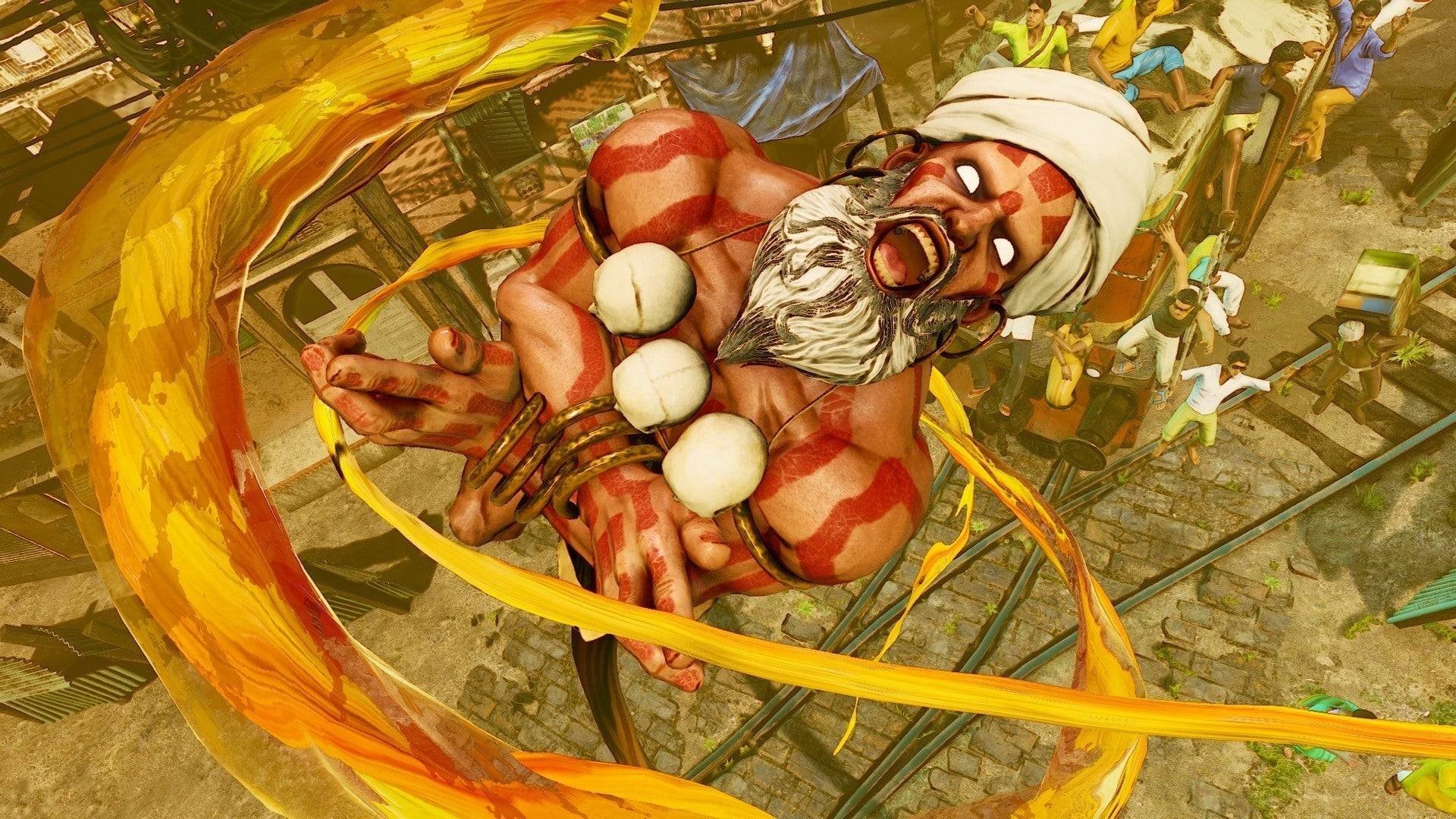 By the mid-2010s, Capcom began implementing changes to turn their fortunes around. The first step was addressing the issues with Street Fighter 5. Directors Takayuki Nakayama and producer Shuhei Matsumoto were tasked with stabilizing the game. Despite the constraints they faced, they focused on fixing critical issues and laying the groundwork for Street Fighter 6.
By the mid-2010s, Capcom began implementing changes to turn their fortunes around. The first step was addressing the issues with Street Fighter 5. Directors Takayuki Nakayama and producer Shuhei Matsumoto were tasked with stabilizing the game. Despite the constraints they faced, they focused on fixing critical issues and laying the groundwork for Street Fighter 6.
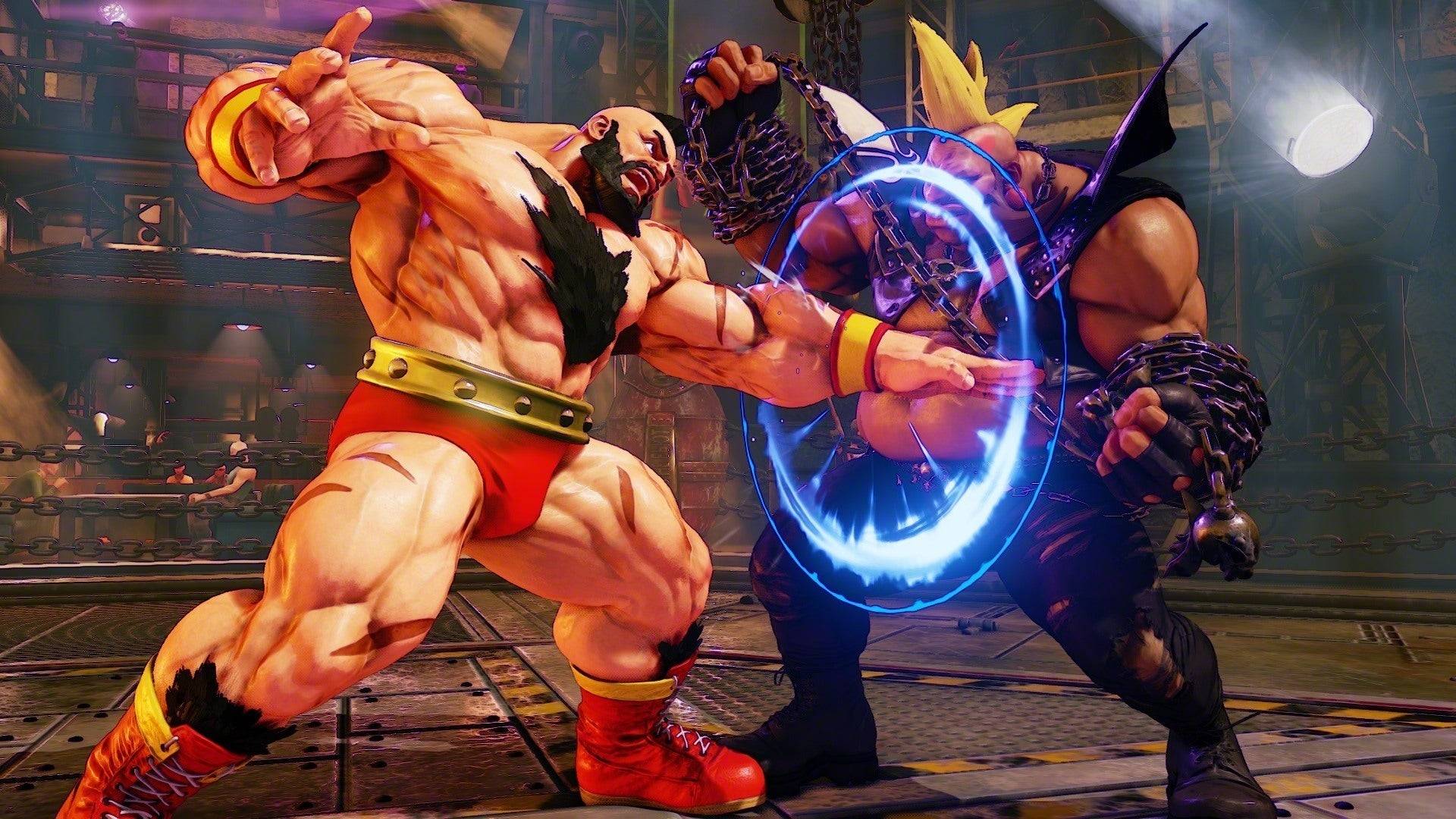 Rather than abandoning Street Fighter 5, Capcom used it as a testing ground for new ideas, which ultimately informed the development of Street Fighter 6. This approach allowed them to refine the game's mechanics and ensure that the sequel would launch to critical acclaim.
Rather than abandoning Street Fighter 5, Capcom used it as a testing ground for new ideas, which ultimately informed the development of Street Fighter 6. This approach allowed them to refine the game's mechanics and ensure that the sequel would launch to critical acclaim.
Monster Hunter Took Over The World
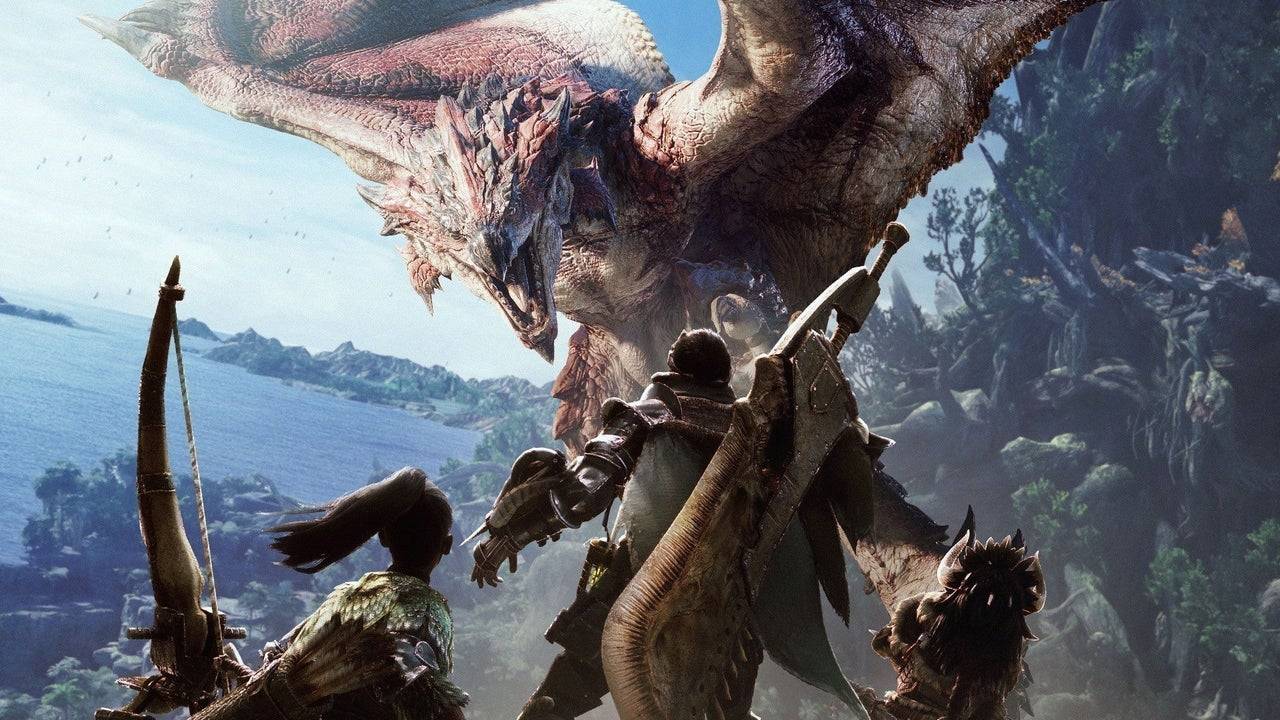 Around the time of Street Fighter 5's launch, Capcom underwent a significant internal reorganization to prepare for a new generation of games. The introduction of the RE Engine, a replacement for the aging MT Framework, marked a pivotal change. Alongside this technological upgrade, Capcom set a clear goal to develop games for a global audience, not just for specific regions.
Around the time of Street Fighter 5's launch, Capcom underwent a significant internal reorganization to prepare for a new generation of games. The introduction of the RE Engine, a replacement for the aging MT Framework, marked a pivotal change. Alongside this technological upgrade, Capcom set a clear goal to develop games for a global audience, not just for specific regions.
Hideaki Itsuno, a key figure behind Devil May Cry, highlighted the importance of this shift: "The change of the engine and also all teams were given a very clear goal at that point to make games that reach the global market. [Games] that are fun for everyone."
Monster Hunter epitomized this new approach. While the series had a dedicated following in the West, it was predominantly popular in Japan due to the success of handheld consoles like the PSP. The release of Monster Hunter: World in 2018 marked a significant shift, as it was designed for global appeal, launching simultaneously worldwide with no region-specific content.
Executive producer Ryozo Tsujimoto emphasized the importance of global accessibility: "The fact that we called it Monster Hunter: World is really kind of a nod to the fact that we wanted to appeal to this worldwide audience that we wanted to really dig into and experience Monster Hunter for the first time."
The global success of Monster Hunter: World and its follow-up, Monster Hunter Rise, both exceeding 20 million copies sold, showcased Capcom's ability to expand their audience without compromising the core identity of their games.
Resident Evil 7 Began Turning Things Around
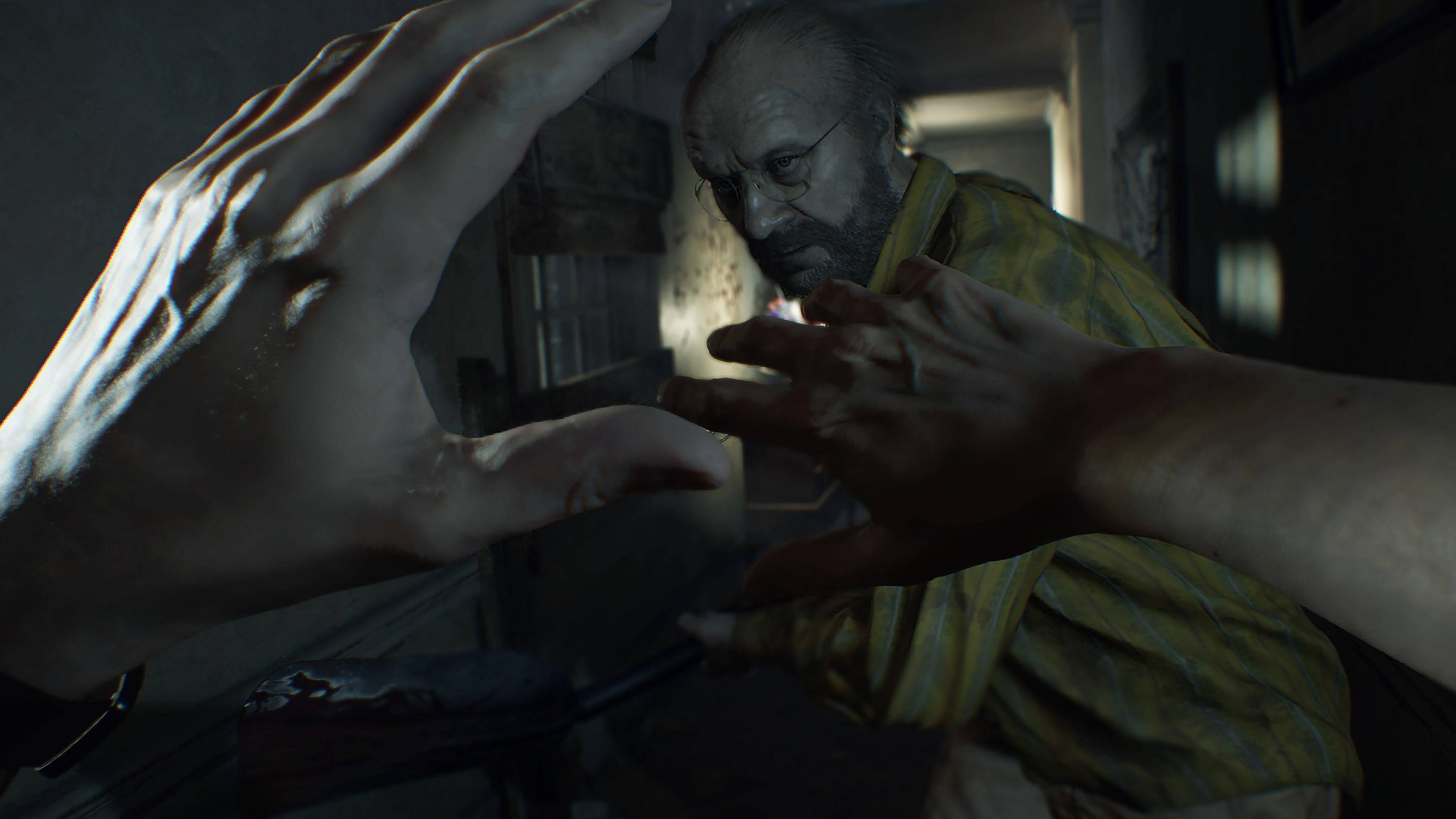 The challenge for Resident Evil was to find the right balance between action and horror. Executive producer Jun Takeuchi made the crucial decision to steer the series back to its survival horror roots. Resident Evil 7, announced at E3 2016, embraced a first-person perspective, reintroducing the series to its horror essence.
The challenge for Resident Evil was to find the right balance between action and horror. Executive producer Jun Takeuchi made the crucial decision to steer the series back to its survival horror roots. Resident Evil 7, announced at E3 2016, embraced a first-person perspective, reintroducing the series to its horror essence.
Yasuhiro Ampo, who worked on Resident Evil 2 and 4 remakes, explained the shift: "With Resident Evil 7, the executive producer, Jun Takeuchi, made it clear that we cannot underestimate how critical it is for the series for it to be scary and about survival."
The success of Resident Evil 7 paved the way for subsequent titles, including Resident Evil 8 and a series of remakes. The Resident Evil 2 remake, in particular, was a critical and commercial success, blending horror with the series' signature action and puzzles.
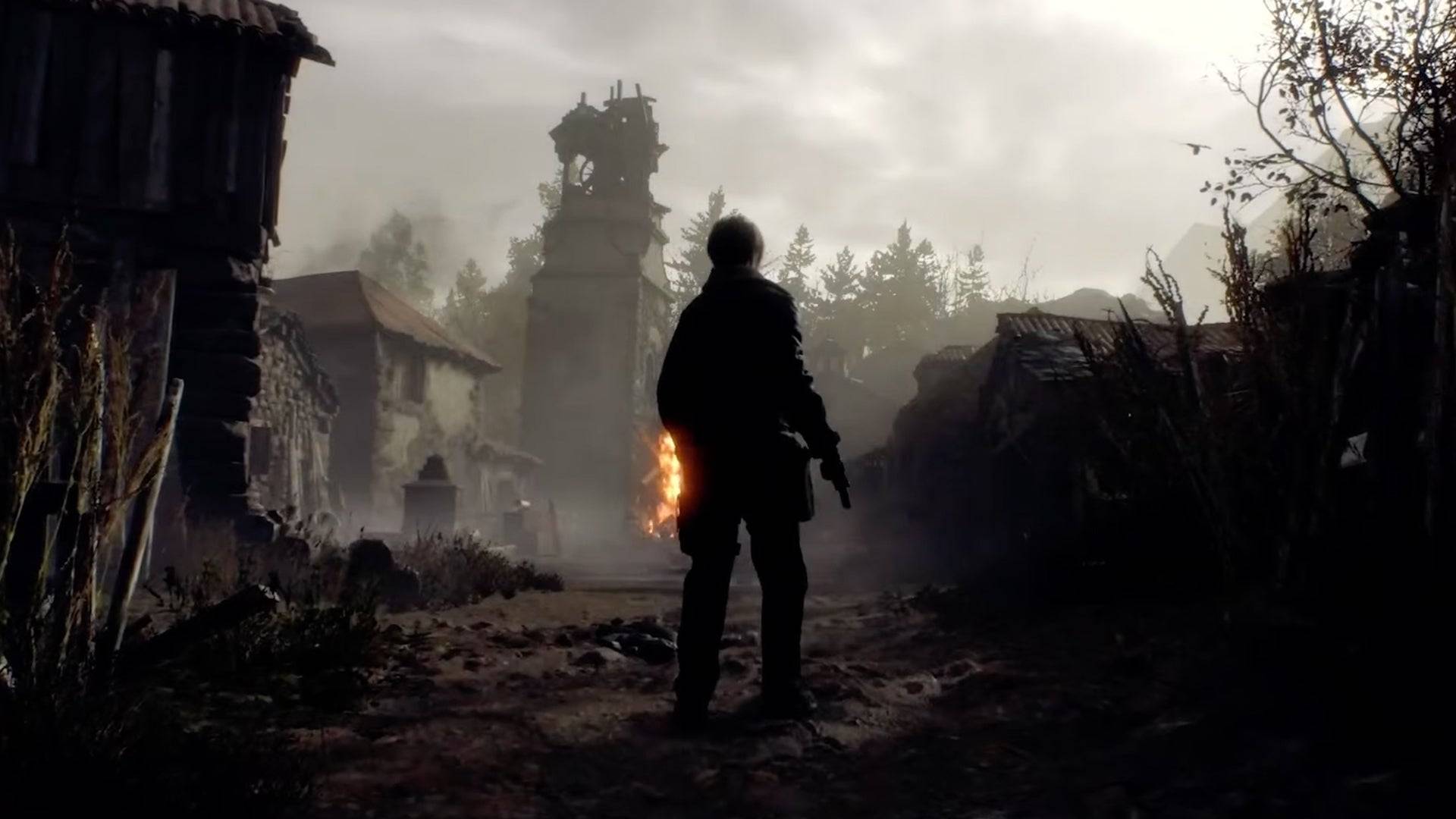 Despite initial hesitation, the Resident Evil 4 remake also proved successful, fine-tuning the balance between action and horror to stay true to the series' roots.
Despite initial hesitation, the Resident Evil 4 remake also proved successful, fine-tuning the balance between action and horror to stay true to the series' roots.
The Reason Behind The Change
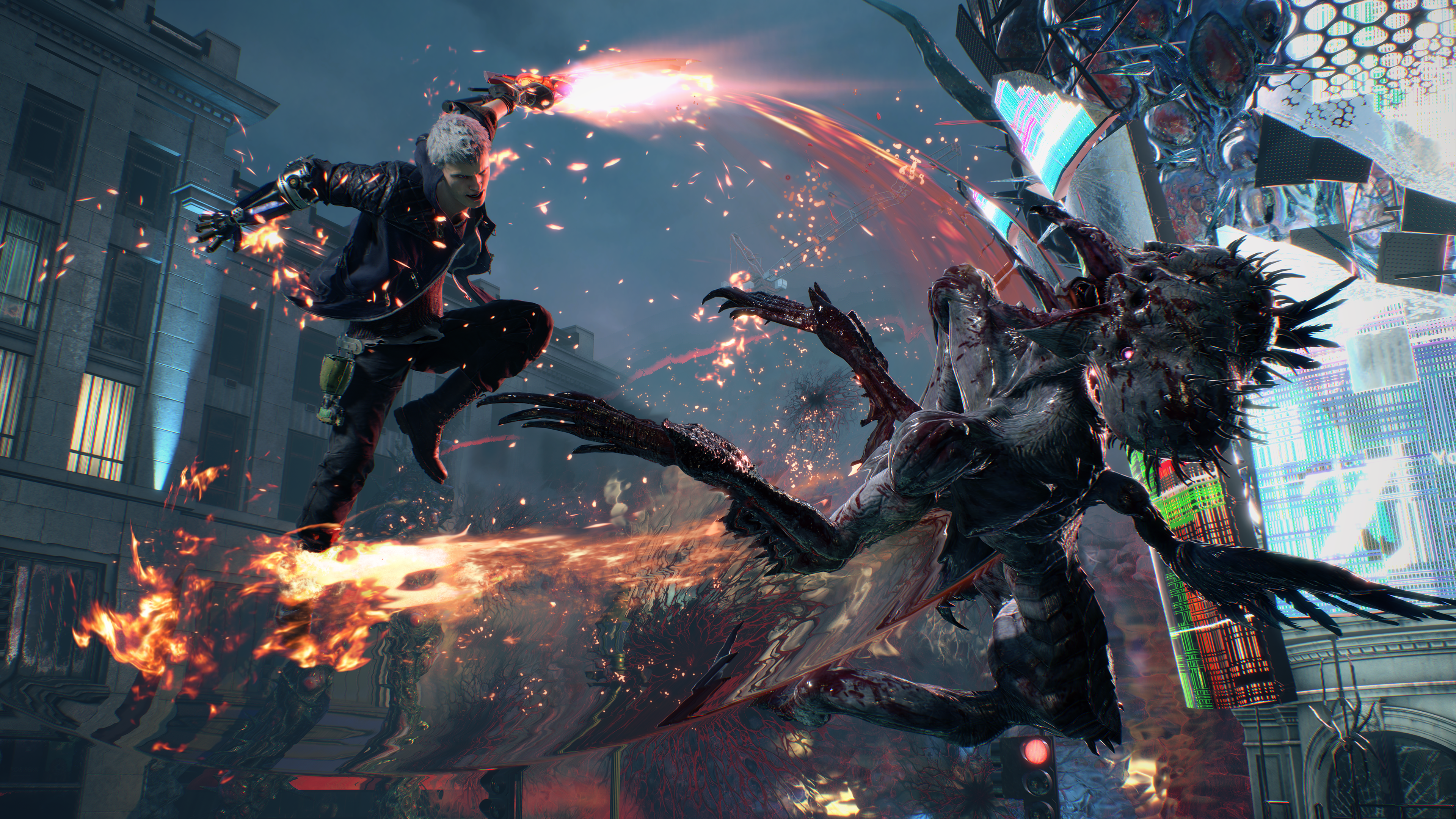 Hideaki Itsuno, returning to direct Devil May Cry 5 after a decade, aimed to revitalize the action genre. The adoption of the RE Engine was instrumental in achieving this goal, providing the development team with advanced tools to enhance the game's visual fidelity and gameplay.
Hideaki Itsuno, returning to direct Devil May Cry 5 after a decade, aimed to revitalize the action genre. The adoption of the RE Engine was instrumental in achieving this goal, providing the development team with advanced tools to enhance the game's visual fidelity and gameplay.
Itsuno's vision for Devil May Cry 5 was clear: "Devil May Cry is a franchise that stands on being cool. That’s what the franchise is, it’s about being cool."
A New Capcom Golden Age
Since 2017, Capcom has consistently released critically acclaimed games, achieving a level of consistency that many major studios struggle to match. Their focus on creating globally appealing games, supported by advanced technology, has resulted in a new golden age for the company.
Capcom's success lies in maintaining the core identity of their games while expanding their audience. Street Fighter's Nakayama expressed enthusiasm about this period: "It’s a very exciting time to be at Capcom right now. A lot of us are able to get excited about what we’re working on and are able to focus on things that we think are fun."
Monster Hunter's Tsujimoto echoed this sentiment: "Capcom is going through a golden era, and, well, now we have to do everything we can so that this lasts one more year, one more year, and every year, one more year. Hopefully we can extend it as long as we can."
 Home
Home  Navigation
Navigation






 Latest Articles
Latest Articles





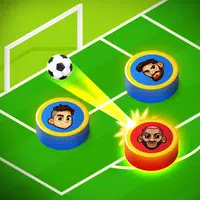


 Latest Games
Latest Games
